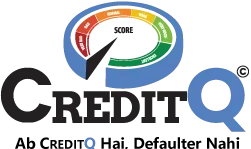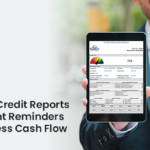A traditional tall challenge for agencies is arranging timely payments from their debtors, and late payments often empty a company’s coffers to operate and maintain a solid association with its customers. Payment Reminders have entirely changed the role of one to that of the gainer of Debtor Payment Settlement. Consistent communication and the use of the company credit report can aid companies in streamlining their debt settlement system and ultimately lead to good financial relations.
Debtor Payment Settlement is of paramount importance in ensuring efficient debt settlement. At CreditQ, we recognize the need to handle these debts effectively and hence provide our clients with the tools and assistance to keep an eye on their receivables while providing workable solutions. In this article, we will go through the critical role of Payment Reminders in aiding debtor payment settlement and how the implementation of a company credit report can further benefit the process.
Understanding Debtor Payment Settlement
Debtor payment settlement is a scenario where payments yet due by customers or clients are settled and made. It entails communication, negotiation, and maybe also some legal action to settle the debts on time. Efficient debtor payment settlement is the lifeline of cash flow in business arenas, especially for SMEs, to avoid any kind of financial breakdown.
Late payments cause a chain reaction whereby these would be late payments at the time from vendors to operational efficiency and thus slow down the pace of growing the business. To deal with these, businesses have to come up with proactive arrangements to encourage timely settlements. One of those arrangements includes Payment Reminders, which act as a straightforward reminder to just urge debtors to fulfill the requirements.
Why Are Payment Reminders Important?
Payment Reminders are sent to notify debtors to settle all of their outstanding invoices or dues. They can be sent through emails, SMS, phones, or automatically on some platforms such as CreditQ. Their aim is to keep payment obligations top of mind for a debtor, thus lessening the chance of delay or defaults. This is the best justification for needing Payment Reminders:
Encourage Timely Payments: Properly timed reminders can entice debtors to take action before their payments are considered overdue, hence reducing the risk of becoming delinquent.
Maintain Professional Relationships: Well-mannered and professional reminders help avoid straining the relationships with associates by being less confrontational.
Reduce Administrative Burden: Automating the reminders about payments means saving time and resources, thus allowing the firm to allocate them to core operations.
Improve Cash Flow: The constant Debtor Payment Settlement, which Payment Reminders assure, helps a business keep its cash flowing into day-to-day operations.
Prevent Escalation: With early intervention, reminders will help prevent the debt settlement process from escalating into something adverse, for example, litigation.
Businesses can implement Payment Reminder within their debt management strategies to construct a well-organized receivables management system, which in turn will facilitate smooth financial operations.
Working on how to fix the coordination between Invoices and Settlement is the basic advantage of Giving Payment Reminders. When implemented with strategy, they actually help a lot in Debtor Payment Settlement measures in the following ways:
1. Communication in Expectation of Payment
Payment Reminders act as an early proactive communication to keep the debtors aware of their debts before these debts will become overdue. For example, a reminder can be sent just a few days before the due date, which triggers some form of earlier action from these debtors. This sort of communication usually works well to not allow the instance of missed payments that came as a result of mere forgetfulness or gross oversight.
The CreditQ platform allows businesses to schedule payment reminders to debtors at particular intervals, thus avoiding inconsistent communication and too frequent reminders. This careful scheduling and considerate communication are essential in maintaining goodwill and encouraging payment.
2. Tailoring to Receive More Responses
Generic reminders rarely work. Personalizing Payment Reminders by including the debtor’s name, the number of the invoice, and the due date would get more responses.
CreditQ allows companies to customize the reminders to fit their branding voice and debtor preferences, thus increasing the chance for a positive response. Consideration through personalization displays that the company conducting business pays attention to details and allows relationships to progress along a professional line of trust.
3. Automation for Efficiency
When a business has so many debtors, manually tracking due dates and sending reminders becomes really time-consuming. Through CreditQ, this important Payment Reminders task can be automated, streamlining the entire process. Businesses can automate sending reminders at set intervals, such as:
- 7 days prior to the due date
- On the due date, and
- 7 days after the due date (for overdue payments)
Automation also keeps the system consistent and largely free of human error, and gives businesses the ability to focus on growing instead of mundane tasks.
4. Escalate Reminders for Debts Past Due
Payment Reminders can be escalated and modified to bear a firmer tone and impose stricter measures, such as a late fee or interest charge, when payments get overdue. For instance, reminders issued for overdue invoices may politely but bluntly demand immediate payment, and warn of the stipulated consequences thereon.
The CreditQ platform provides templates under which reminders can be escalated and businesses will care to maintain their professional posture while emphasizing urgency on the matter of Debtor Payment Settlement.
5. Integrated With Company Credit Reports
A Company Credit Report provides insights into a debtor’s financial condition, helping to conduct all-inclusive analysis. Hence, with integration with Payment Reminder systems, this report helps businesses develop very localized strategies tailored around a debtor’s risk profile. For example, a debtor with a history of late payments may require more frequent or assertive reminders, while those with a clean record may just need the slightest reminder.
- Tips for Implementing Payment Reminder Effectively
- To fully benefit from Payment Reminders, businesses will want to abide by these best practices:
Time It Right: Send reminders long before the pay date, so that a debtor can have ample time to prepare for the payment.
Keep Professional Tone: Keep the tone of voice positive and polite. Never use aggression or confrontation.
Clear and Concise Information: While keeping the information simple, give the four very important details: invoice price, payment date, payment location, and payment note.
Use Multi-Channels: Email reminders are often combined with SMS and even telephonic communication for maximum leverage. It provides higher chances for a debtor to receive a reminder.
Constant Follow-Up: Set a reminder schedule to consistently be sending follow-ups to gradually push for payment without being intrusive.
Get Technology Help: The package includes automated reminders and tracking of reminders by CreditQ to ensure reminders never fall through.
Keep an eye on Debtors’ Behavior: Business Credit Reports may help indicate debtor patterns, which might give insight into how to adjust their reminder strategy.
Keeping these best practices in mind will help businesses ensure that their Payment Reminders remain effective, ultimately leading to a successful Debtor Payment Settlement.
Role of Company Credit Reports in Assistance with Payment Reminders
Company Credit Reports serve to supplement and strengthen the efficacy of a Payment Reminder. They provide insights into a debtor’s financial standing and have information on course and past payment behavior. Below are the various ways they complement Payment Reminders: Assessment of Risk: Assessment of the credit risk before granting credit or an offer will enable the Company Credit Report to allow the setup of timely payment terms and DocPrint Reminder Calendars.
Tailor-Made Procedures: A Debtor who has a poor credit history is restrained from more frequent and, if necessary, assertive reminders, while debtors with good credit may need gentle prompting only.
Informed Intents: Based on the financial situation of debtors, businesses must identify whether it can be flexible execution of payment plans followed by strict action for overdue accounts.
Avoiding Bad Debt: Proper utilization of Company Credit Reports keeps out from providing credits to higher risk debtor, which would account for reliance on extensive reminder campaign.
CreditQ allows access to Company Credit Reports so businesses have reliable, real-time data on which to base their decision. Combining this one alongside Payment Reminders opens up a complete debt management method, minimizing risks and maximizing settlements.
Challenges in Debtor Payment Settlement & Payment Reminders: Working as Solutions
Along with the best intentions, businesses still meet some considerable challenges with Debtor Payment Settlement. These include:
Forgetfulness: A busy schedule and chaotic financial processes mean that debtors can overlook paying.
A Crushed Wallet: Debt trouble may cut into cash flow, preventing them from settling payments.
Lack of Communication: Poor communication regarding expectations of payment amongst others tends to delay.
Disputes over invoices: Disputes over invoices freeze the payments.
These types of challenges get addressed by Payment Reminders:
- Keeping payment obligations in mind of forgetful debtors.
- Specifying payment options for debtors distressed with solvency.
- Providing clear and consistent communication concerning dates and amounts.
- Avoiding any invoices overdue by prompting debtors to raise any disputes.
By addressing these challenges proactively, payment reminders create a better environment for Debtor Payment Settlement.
Must Read: What’s the Best Way to Ensure Quick Settlement from Buyers Using Automated Reminders?
Why CreditQ for Payment Reminders and Debtor Payment Settlement?
At CreditQ, we champion the cause of settling money in time as this challenge bars the free flow of capital. The platform comes embedded with tools hindering roadblocks to Debtor Payment Settlement, including:
Automated Payment Reminders: Schedule and send reminders with ease, saving time and creating consistency.
Customizable Templates: Design branded reminders in a professional format felt by your debtors.
Company Credit Reports: Extract in-depth information on debtor creditworthiness that may help shape your reminder strategy.
Real-Time Tracking: Keep a close watch on payment status and reminder response for going out-of-receivables.
With CreditQ, businesses gain control of their cash flow while simultaneously reducing late payments and developing good financial relationships with their debtors themselves.
Conclusion
Payment Reminders are the dark horse of a truly productive Debtor Payment Settlement. Excelling in mechanisms promoting proactive communication, they allow businesses to significantly better their debt settlement rate by automating processes that seamlessly tie into a Company Credit Report through platform providers such as CreditQ.
Availed smartly, Payment Reminders keep businesses on track with timely payments, healthy cash flow, and amazing relationships with their debtors. It is time you click over to CreditQ and give a boost to your Debtor Payment Settlement.
CreditQ’s Company Credit Report feature helps businesses assess debtor reliability prior to granting credit and thus permits setting reasonable reminder schedules and payment terms. This scientific use of real data comes to multiply Payment Reminders’ efficiency and implement Debtor Payment Settlement.














